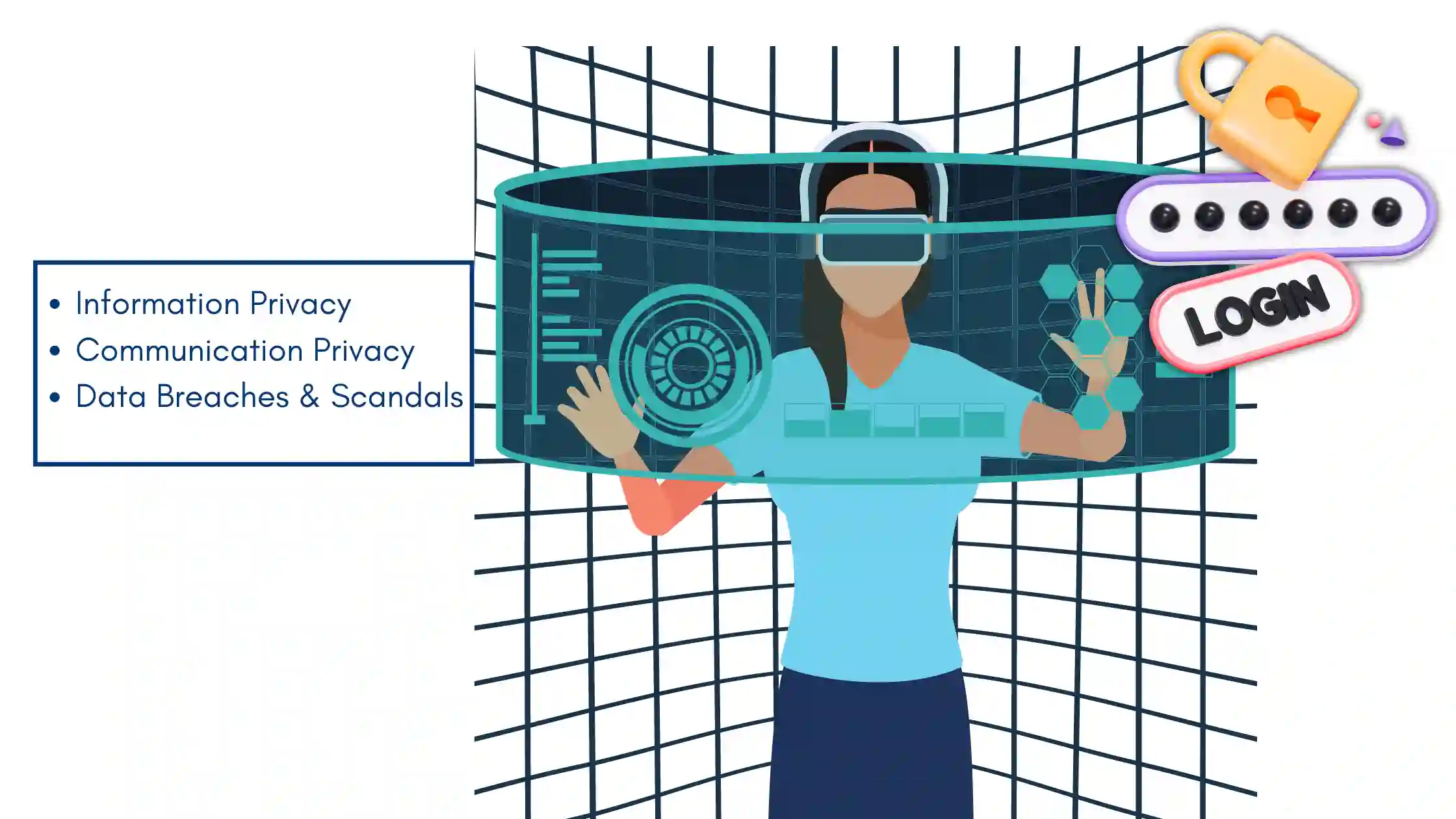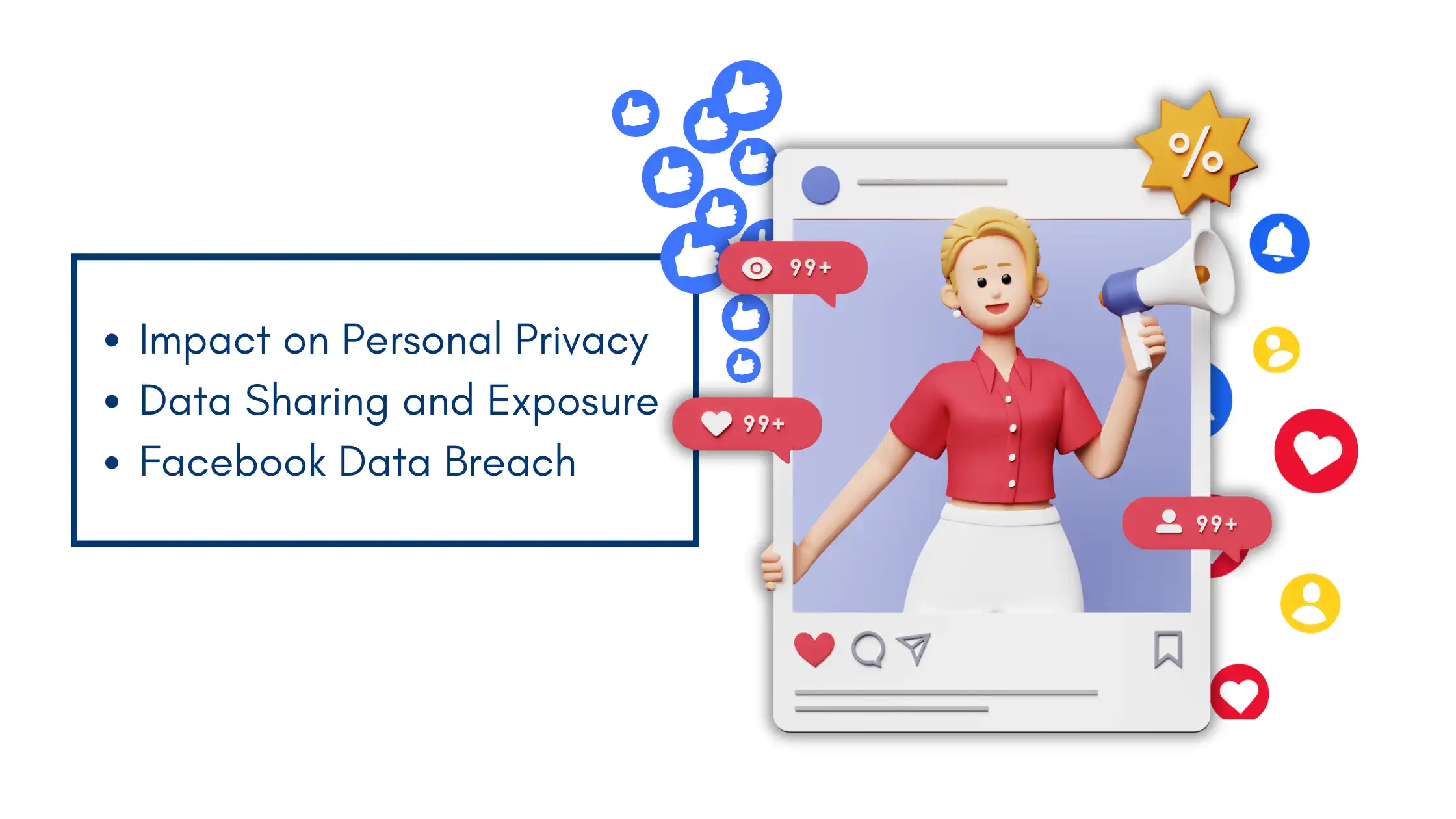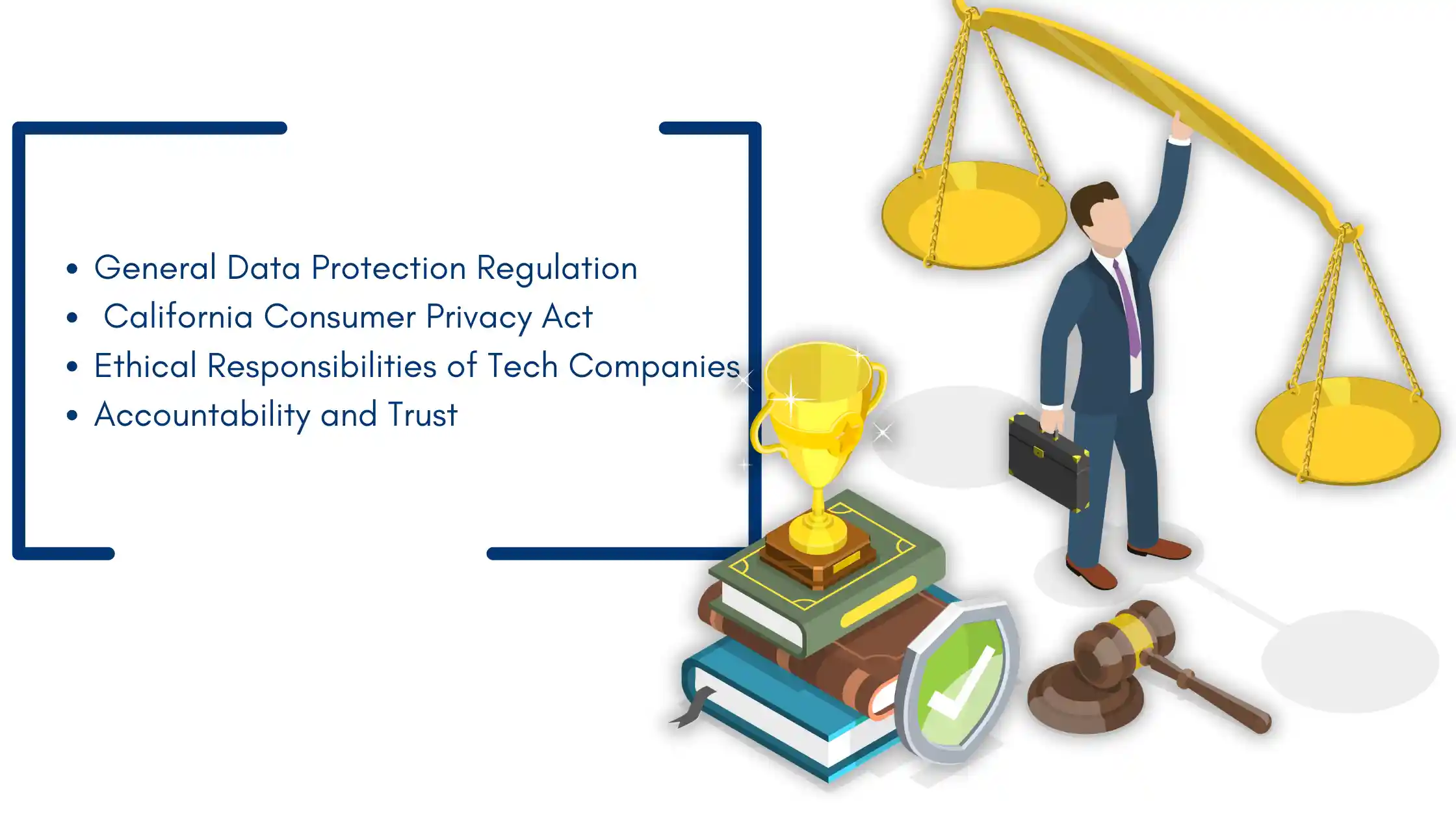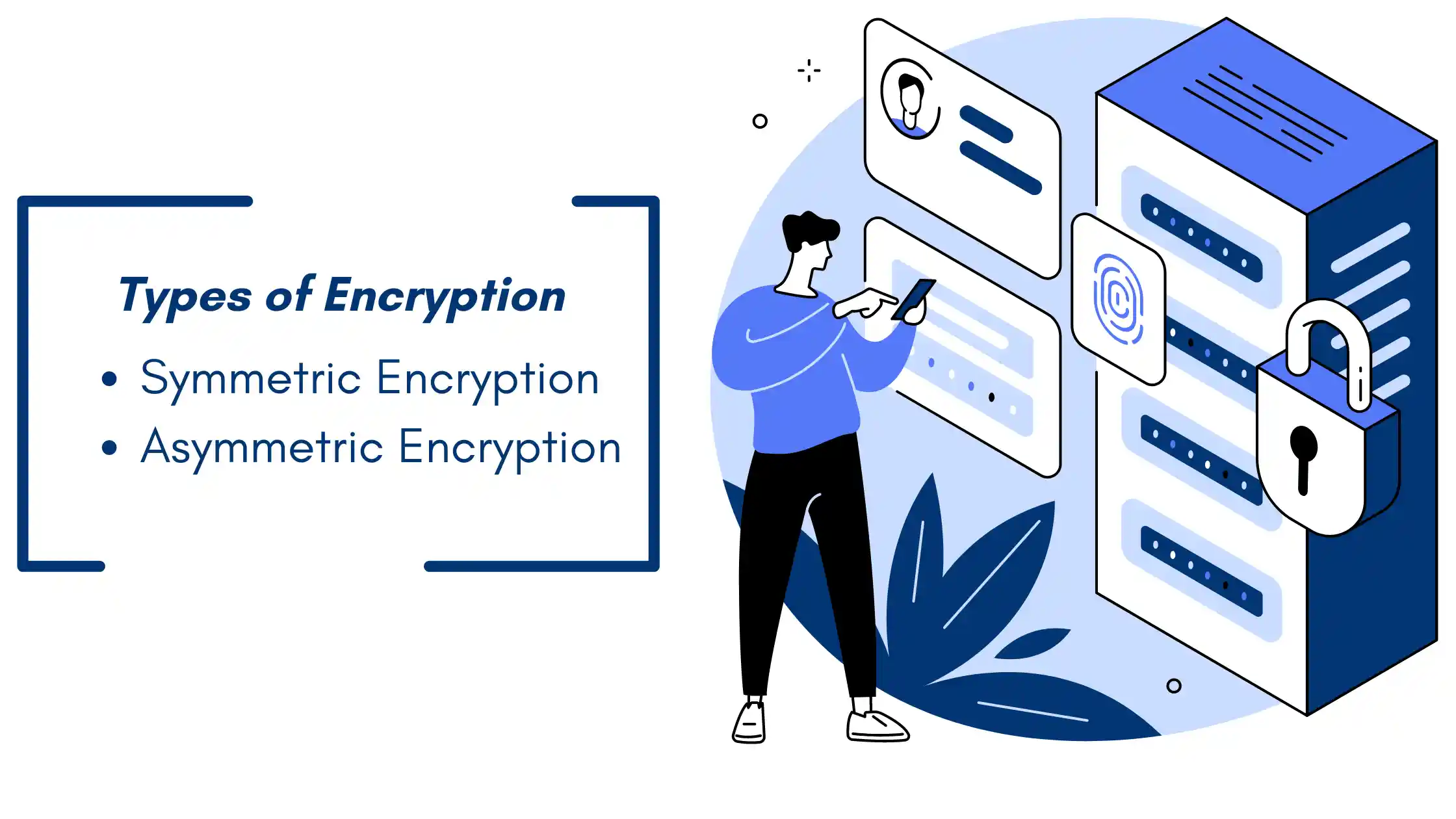A recent survey carried out on internet users disclosed that they are very worried about privacy issues with technology, especially the usage of data by online companies, which has now risen to 79%, making people strategize about their privacy.
This statistic alone explains the fact that the level of differences between what happens in private and public spaces is gradually erasing as people face the severity of their online actions.
Data privacy is always an important consideration and should always be dealt with when developing technologies that would protect the data of the user and thus the confidence of that user.
However, there is a need to apply strong privacy features and make use of control to safeguard people’s privacy and allow them confidence in the services they use.
Understanding Privacy In Technology

Privacy, especially in the technological and digital communication base, is the extent to which an individual can regulate the collection, use, and disclosure of their personal information. Privacy and Technology encompasses various aspects, including:
- Information Privacy: Data privacy, particularly for the data held by organizations guarantees that the person owning the data has the right to decide how the data is being utilized.
- Communication Privacy: Protection of person-to-person communication such as messages, emails, calls, and other means of communication from illegitimate access and interception.
- Individual Privacy: Preserving the privacy of a person and his/her information in cyberspace so that the person can have his/her self-respect and independence.
Lastly, Privacy and Technology is not an endeavor to conceal or to shut one’s affairs from others but the ability to decide who gets what about one and when and why, focusing on the consent aspect of data processing.
The Evolution of Privacy
The evolution of privacy expectations and norms has been significantly influenced by technological advancements over time:
- Early Internet Era: First, there was no question about technology privacy as with the appearance of the Internet, consumers mostly disclosed information, and there were rare sessions when participants were requested to share their data.
- Rise of Social Media: In the physical world, they still had privacy rights, but with the initiation of social networking sites, they started sharing their pictures, their data, and so on, not knowing the repercussions that it could have on technology privacy. This subsequently made more companies get into the habit of accumulating data.
- Data Breaches and Scandals: Such events, such as the exploitation of Facebook data by Cambridge Analytica, also brought awareness of technology privacy, leading to the call for more rigid laws on data privacy.
- Regulatory Developments: Speaking of the importance of protective laws, the GDPR and the CCPA arose as trialed examples to state the necessity of such regulations in the context of the world at the turn of the twenty-first century.
- Emerging Technologies: AI, Machine learning, or even Blockchain among the newly developed technologies are reconstructing the previous image of privacy in a rather innovative way offering better techniques of data protection as well as creating new forms of surveillance and data misuse.
- Current Landscape: Today people are more conscious of their rights based on the Privacy Acts and possible threats regarding the sharing of data hence they need organizations to be more transparent, they should have control and must be made to answer for their deeds.

- Lightning-fast speeds to browse without lag
- Servers in 105+ countries around the globe
- Military-grade security to stay safe online
- Try it risk-free with its money-back guarantee
- Native apps for all major devices
Privacy About Current Technology
Data Collection and Surveillance
- Extent of Data Collection: Business and state actors gather lots of information from users and seldom obtain their direct permission. This entails monitoring activities that take place on the internet, the purchasing pattern, and even geographic location through device features like cookies and mobile applications, raising significant concerns about technology privacy.
- Surveillance Practices: Surveillance has grown to near-ubiquitous with many governments instituting mass surveillance for security and safety purposes. This includes surveillance in their communication augmented by technologies such as CCTV and facial recognition; a situation that raises major issues on rights to technology privacy and civil liberties.
- Public Awareness: A large number of users are no longer aware of the degree of data collection by the firms and its utilization, hence the increase in the demand for the tenets of transparency for firms concerning technology privacy.
Identity Theft and Fraud
- Rise of Identity Theft: The collection and sharing of people’s data have gone digital, and have experienced a sharp spike in identity theft cases. Hackers take advantage of these gaps in the network to hack into personal computers with personal data like social security numbers, bank account details, and credit card details.
- Facilitation by Technology: Identity theft can happen through the use of technology via; phishing, data theft and malware. Such strategies enable the criminals to access individuals’’ details with a view of embezzling them.
- Implications for Individuals: Identity theft is a terrible phenomenon because the consequences may be serious, like money loss, deterioration of credit histories, stress, and even illnesses. Restoration also may take a long period and depend on the type and gravity of the violation while underlining the importance of information security and the need to protect internet privacy.
Invasive Advertising
- Targeted Advertising Practices: This is done by gathering vast amounts of information on users that is then used to build accurate consumer persona for advertising purposes. Although this can improve and personalize the content depending on the user, it also violates privacy.
- User Discomfort: Targeted advertising makes many people uncomfortable because of the level of monitoring that is taking place to gather the data for the ads. This discomfort can ultimately weaken people’s confidence in the brands and applications they use.
- Privacy Invasion Concerns: The nature of using personally associated advertisements calls for important ethics questions on the aspects of technology privacy and consent regarding the degree to which business entities should mobilize and exploit individual identity data for commercialization. The users raise the consciousness level regarding the data they provide and their utilization in advertising.
The Role of Social Media

Privacy Concerns on Social Platforms
Impact on Personal Privacy: This postulates that social media has great significance in the disposition of personal privacy because it enables the gathering and sharing of a large amount of information, raising online privacy concerns.
The most frequently practiced breaches include identity, geographical location, interest area, and contacts that are used in advertisement and data mining.
Third parties also have a way of accessing such data, adding worries of misuse, exploitation, and further online privacy concerns related to the information obtained.
Data Sharing and Exposure: The privacy settings that come with the majority of social media are many a times complex and hence ‘‘unfriendly’’ when it comes to data sharing and many times this results in data leakage.
Sharing can be done involuntarily or rather unconsciously which implies that the users may not fully understand the impact and implication of their sharing and, therefore, information is shared with no regard to the intended recipients.
It will lead to disclosure of the individual’s information and fraud as in identity theft.
Surveillance and Monitoring: The stakeholders may perhaps monitor the activity in social media as a security and to promote more selling of the products.
It can be a threat to the users’ rights to privacy and freedom of speech since attitudes and behaviors are different when one is conscious that his or her activity is being monitored.
Case Studies
Cambridge Analytica Scandal: Among the most famous data leaks, one should distinguish the Cambridge Analytica case, which took place in the sphere of social networks.
It was said that the political consulting firm provided data of fifty million Facebook users without their permission to assist in the United States presidential election in 2016, raising significant online privacy concerns.
Facebook Data Breach: The other scandal which was well publicly remarked in the year 2019, involved Facebook where hackers broke into the social network and accessed the data of over 540 million users.
Specifically, the violation was related to the storing of the users’ information on vulnerable servers that might be accessed by third parties.
This brought out features the fact that social media has risks and the dangers that users subject themselves to when their privacy measures are not strong enough.
Twitter Account Hacks: In this case, the targeted attack on the social media platform Twitter led to the falsification of high-profile accounts including those of some personalities in 2020.
The intruders took advantage of social engineering to compromise the institution’s systems where they posted unauthorized messages and possibly got hold of users’ information.
This event emphasized the significance of the strong security measures and user’s concerns regarding the data in social networks.
Legal And Ethical Considerations

Privacy Laws and Regulations
General Data Protection Regulation (GDPR):
- GDPR full form is General Data Protection Regulation and it was adopted in April 2016 and implemented on 25th May 2018.
- Originally signed in 2018, the full form of GDPR is the General Data Protection Regulation, which is an extensive data protection law addressing online privacy concerns regarding personal data, specifically by anyone with businesses within the European Union.
- The laws elaborate part of the rights in the following manner; the right of subjects to receive from the Controller his/her Data and the right to rectify it as well as the right to be erased.
- The breakdown of firms to observe the laws established is again proved to bring about penalties which can be in the form of fines extending up to € 20 million or 4% of the turnover of the given firm in the money year that is under analysis and which whichever is higher in value.
California Consumer Privacy Act (CCPA):
- A notion as the California Consumer Privacy Act (CCPA) exists, I finally understood.
- CCPA was enacted in 2020 as a law governing the privacy rights of residents of California and includes the right to cause a business to inform the consumer of the categories and specific pieces of personal information it has collected about the consumer, for which business purpose the information was collected, and the right to request that a business cease selling the consumer’s personal information, a crucial aspect of addressing online privacy concerns.
- The amount of money which is to be penalized depends on the degree of the violation and is $2,500 to $7,500 for one violation; however, the violators offer thirty days to rectify the situation for which the penalty was supposed to be imposed on them.
Impact on Technology Companies:
GDPR and CCPA influence the approach to enforcing data protection policies and transparency in technology-related businesses since they are in a condition that influences business processes and conformity.
Besides the costs related to the training and educating of the staff, a firm needs to invest in data management systems and data audits to meet these regulations, secure yourself in financial sectors, and adapt to changes in how the firms report and present their financial statements to the investors and how they assess the risk of a certain financial venture.
Ethical Implications
Ethical Responsibilities of Tech Companies:
- Executives in technology firms have the social responsibility to safeguard user’s privacy and information. This includes the method that data collecting uses to explain to the users how their data will be used.
- It must be stressed the user’s consent regarding the data and availability of direct settings options that allow the user to adjust their preferences in terms of their data or resources’ usage.
Balancing Profit and Privacy:
There is always a dilemma of an organization making profits and at the same time, practicing a sound and ethical approach to how they manage data.
Data monetization can be seen as rather effective when it comes to producing revenue, yet, the issues of using people’s data and the harm it may potentially cause became an urgent ethical concern.
More specifically, it is high time that companies incorporated the fair use of peoples’ data as an essential component of their business strategies instead of it being an occasional consideration.
Accountability and Trust:
Justifying ethical practices when it comes to the use of data creates confidence among the users and the technology firms.
According to Kleppinger, when organizations act responsibly by providing clear details on how they manage their operations and protect their customers’ information, they benefit by increasing the organization’s credibility in the market and customer trust.
Ethical considerations are also relevant to businesses in the aspect of data breaches, especially when it comes to their timely reporting, as well as the processes aimed at safeguarding users’ rights and interests.
Technology Solutions For Privacy Protection

Uninterrupted, high-speed browsing, zero logs so your online activity is always private.
Over 7000 people checked out NordVPN in the last month

Encryption and Data Security
Role of Encryption
Encryption also stands as a central function in the protection of the individuals’ data as it translates from a readable format, plaintext, into an unreadable format, ciphertext.
In addition, this process helps to guarantee that only those with the correct decryption key in this case only the authorized personnel would retrieve the original data hence minimizing cases of data leakage.
Types of Encryption
- Symmetric Encryption: Has a single key employed for encryption and decryption; thus, it is suitable for processing massive data given its simplicity. An example of this is the Advanced Encryption Standard (AES).
- Asymmetric Encryption: Whether simple or complex, the system does employ a pair of keys, namely, public and private. This method enables anybody to encrypt the message or data with the public key but only the owner of the private key can decrypt the information making it more secure in communication.
Benefits of Encryption:
- Data Protection: If somehow data leaks or is breached, encryption makes it extremely meaningless to hackers, because decrypting the data will be practically impossible if not extremely time-consuming and computationally intensive.
- Compliance: GDPR and HIPAA, for instance, suggest or mandate encryption as the approach to safeguarding specific data to prevent organizations from suffering sanctions and retaining clients’ confidence.
- Trust and Confidence: The case when using good encryption mechanisms may improve the level of confidence of the client rather than Images.
Privacy-Enhancing Technologies (PETs)
VPNs (Virtual Private Networks)
Consistently opt for the top VPN because VPNs help protect an individual’s internet connection by encoding the content and concealing the user’s IP address.
It assists in keeping the users’ activities on the internet away from interception and tracking by the ISPs, hackers as well as other parties that have bad intentions.
Secure Browsers
A browser that has privacy extensions installed like Brave or Firefox allows for partial protection from tracking and advertising by blocking them during web browsing.
Privacy-Focused Search Engine
Most search engines such as DuckDuckGo do not keep records of the history of search or personal details of the users who use those search engines to search the web.
Data Minimization Tools
Those that prevent the exposure of too many personal details on the Internet like cookies or scripts that follow the user’s activities aid the users to remain safe.
Anonymous Communication Tools
Several platforms such as Signal or Telegram provide end-to-end encrypted messaging, which prevents even the developers of the application from reading users’ conversations – and thus preserves users’ privacy in communication.
Altogether, those technologies make for a safer Internet environment where consumers can regain control over their details and become more private in the time that is present more and more focused on the Web.
FAQs
How does social media impact personal privacy?
This is because personal data is disclosed through sharing, tracking,g, and safety setting vulnerabilities hence can easily be used in identification theft.
What are the main privacy issues related to technology?
Among these, the following can be listed: gaining of information, surveillance, identity theft, intrusion through commercial information, and finally, unauthorized access to information.
What is identity theft, and how is it related to technology?
Identity theft is a process of obtaining the personal details of another person without his/her knowledge; in today’s world, personal information is relatively easy to get through such items as gadgets and the World Wide Web.
In what ways privacy laws integrate into the technologies?
Some examples are the GDPR and CCPA which outline the set practices of conducting data collection and act as a framework of a person’s rights to ownership of their data.
What actions can be taken to prevent oversharing on the internet?
Users can also avoid the vice by using passwords on their gadgets and mobile phones, two-factor authentication, and secrecy of the information.
Conclusion
Thus, the problems of privacy issues with technology are becoming notably essential as the applications of technology in our common daily interactions are rapidly expanding. The many data gathering and surveillance measures and the dangers of identity theft are some of the major threats to privacy. In this matrix, user privacy awareness of settings is paramount as is the use of protective mechanisms.
In addition, proper enforcement of privacy laws as well as ethical conduct from the developing technology corporations is another factor that should be embraced. So, if people become more digitally literate and call for better privacy policies, we can secure our privacy and make technology work for us instead of being a risk factor.






